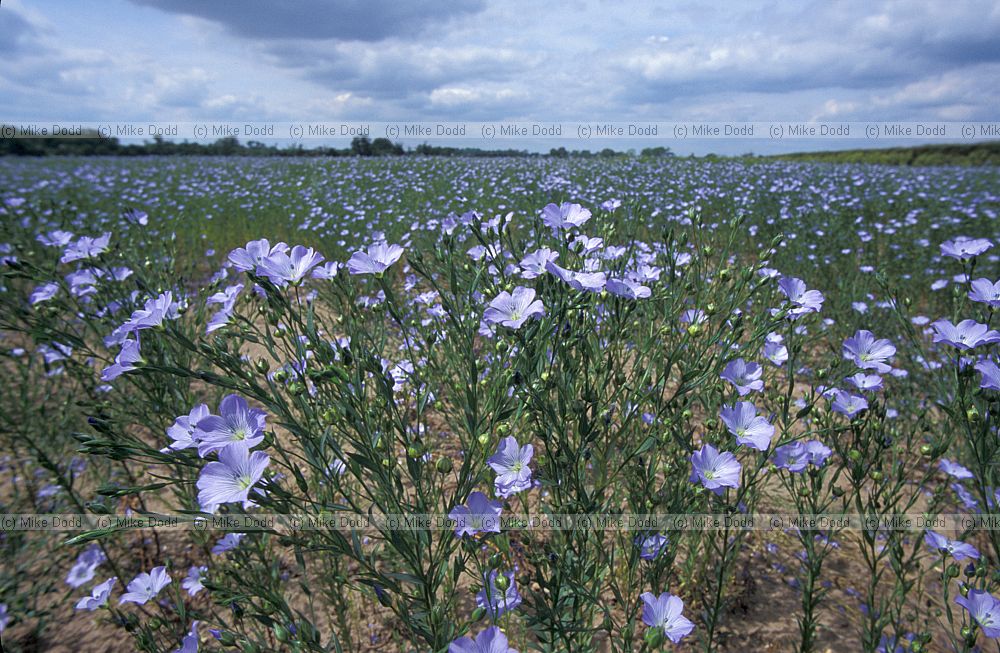Linseed
[size=75]From Wikipedia, the free encyclopedia [/size]
Flax (also known as Common Flax or Linseed) is a member of the genus Linum in the family Linaceae. The New Zealand flax is unrelated. Flax is native to the region extending from the eastern Mediterranean to India and was probably first domesticated in the Fertile Crescent.[1] It was extensively cultivated in ancient Egypt.
It is an erect annual plant growing to 1.2 m tall, with slender stems. The leaves are glaucous green, slender lanceolate, 20-40 mm long and 3 mm broad. The flowers are pure pale blue, 15-25 mm diameter, with five petals. The fruit is a round, dry capsule 5-9 mm diameter, containing several glossy brown seeds shaped like an apple pip, 4-7 mm long.
In addition to the plant itself, flax may refer to the unspun fibres of the flax plant.
Flax is grown both for its seeds and for its fibers. Various parts of the plant have been used to make fabric, dye, paper, medicines, fishing nets and soap. It is also grown as an ornamental plant in gardens.
Flax seeds come in two basic varieties, brown and yellow or golden, with most types having similar nutritional values and equal amounts of short-chain omega-3 fatty acids. The exception is a type of yellow flax called Linola or solin, which has a completely different oil profile and is very low in omega-3. Although brown flax can be consumed as readily as yellow, and has been for thousands of years, it is better known as an ingredient in paints, fibre and cattle feed. Flax seeds produce a vegetable oil known as flaxseed or linseed oil; it is one of the oldest commercial oils and solvent-processed flax seed oil has been used for centuries as a drying oil in painting and varnishing.
One tablespoon of ground flax seeds and three tablespoons of water may serve as a replacement for one egg in baking by binding the other ingredients together. Ground flax seeds can also be mixed in with oatmeal, yogurt, wafer (similar to Metamucil), or any other food item where a nutty flavour is appropriate. Flax seed sprouts are edible, with a slightly spicy flavour. Excessive consumption of flax seeds can cause diarrhea.[2]
Though flax seeds are chemically stable while whole, ground whole seeds or oils become rancid much more quickly upon exposure to oxygen, and require special storage (generally refrigeration or in sealed packaging) to remain nutritious for even a short period of time.[3]

